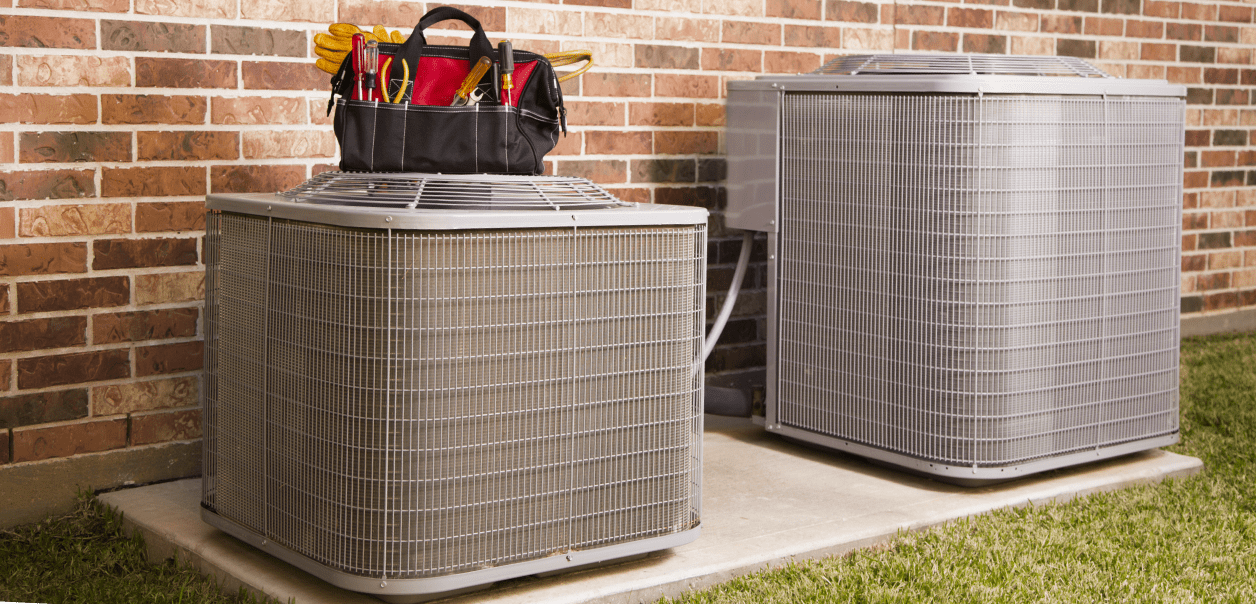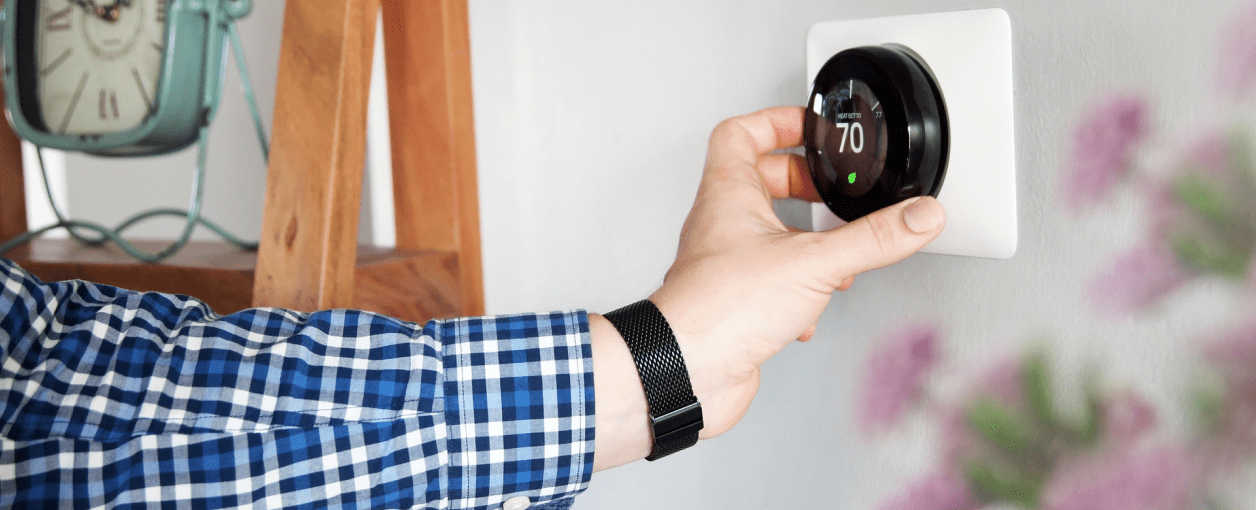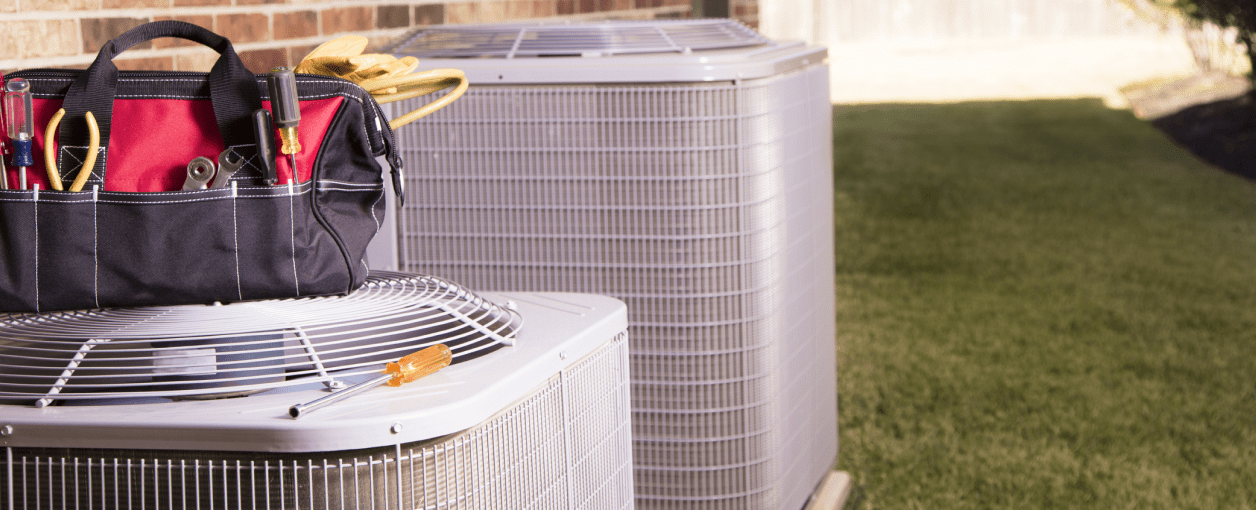

If you’re a homeowner looking for ways to save money on energy costs, one of the best investments you can make is upgrading your heating, ventilation and air conditioning (HVAC) system to a more energy-efficient, ENERGY STAR®-certified model.
But just how much can a new, energy efficient HVAC save you?
Let’s take a detailed look at the costs of an inefficient system, how a new efficient model helps and the potential savings you could see.
The Costs of An Inefficient HVAC

First, let’s talk about why your existing HVAC system, especially if it’s over 10 years old, is likely costing you more to operate than it should. There are a few key reasons for this:
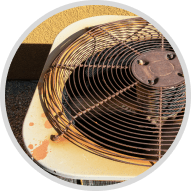
Wear & Tear
All HVAC systems gradually lose some efficiency as they age due to normal wear and tear. Issues like mineral buildup in the coils, rust and small leaks can degrade performance over years of use. Even with proper maintenance, most HVAC systems lose 5-10% or more of their original efficiency after ten years or so.

Lack of Proper Maintenance
Many homeowners do not perform the recommended maintenance on their HVAC systems, such as routinely replacing air filters and having a professional technician do comprehensive maintenance annually. Lack of maintenance causes efficiency issues faster — dirty, clogged filters, for example, can reduce airflow and make the system work up to 15% harder.
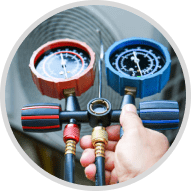
Refrigerant Leaks
Refrigerant is used in AC systems to aid heat transfer. Tiny leaks — which are common as systems age — reduce the refrigerant level and make cooling less efficient. An AC unit low on refrigerant can use more electricity to try to cool your home.
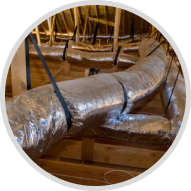
Faulty Ductwork
If your ductwork has many air leaks or is poorly insulated, up to 30% of the heated or cooled air can be lost before reaching your living spaces. Your HVAC then needs to run longer and work harder to maintain comfort. Sealing and insulating ductwork helps maximize efficiency.
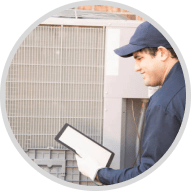
Oversizing
Many HVAC systems can be oversized. This is because they were replaced without proper load calculations or to compensate for poor insulation. An oversized unit cycles on and off frequently, preventing it from operating at its most efficient point. It also dehumidifies your home less effectively.
Aging, lack of maintenance, leaks, duct issues and oversizing force an inefficient HVAC system to run longer cycles and work much harder to try and heat or cool your home effectively. All of this results in higher energy bills for you.

By upgrading to a new, properly sized and energy efficient HVAC, you’ll likely see significant savings on your energy costs while keeping your home more comfortable. Here are some of the main ways a new energy efficient HVAC saves money.
Advanced Compressors & Coils
Newer model ACs and furnaces utilize improved compressors and copper coils that transfer heat far more effectively. This allows them to provide the same amount of heating or cooling as your existing system, but by using less electricity.
Better Insulation
Insulation around ductwork and internal HVAC components has greatly improved over the past decade. This results in less leakage and heat transfer losses as conditioned air circulates through the system and into your home’s ducts.
Precise Sizing
Your new HVAC system should be sized precisely based on calculations by your contractor for your home’s specific heating and cooling needs. This helps ensure it operates at maximum efficiency.
Improved Controls
Smart thermostats, control boards and sensors monitor conditions and fine-tune operation to save energy, further optimize the runtimes of your HVAC system and tailor operation to your schedule.
Higher AFUE Ratings
The higher the annual fuel utilization efficiency (AFUE) on a scale of 30-100%, the more heat energy your furnace converts from fuel to heating your home efficiently. For example, an 85 AFUE furnace uses 85% of the fuel it consumes to heat your home. The remaining 15% is wasted.
Higher SEER Ratings
The higher the seasonal energy efficiency ratio (SEER), the more cooling you get per unit of electricity consumed. A SEER rating of 15–20 is considered efficient, and above-average SEERs are 21+. Most homeowners opt for a unit with a SEER rating between 15 and 18. This provides a good balance between the upfront cost of the unit and the amount you'll save on your utility bills.
Variable-Speed Components
Motors and fans that can vary their speeds based on the heating and cooling needs at any given moment use less energy than less efficient HVACs that always run at full speed.
Regular Maintenance
Staying on top of recommended maintenance like changing filters, cleaning coils and checking refrigerant levels helps keep the system operating at peak efficiency.
When sized and installed properly, all of these improvements in a new, energy efficient HVAC can add up to major savings compared to keeping an old, inefficient unit.

If you’re trying to estimate possible savings from upgrading your HVAC system, there are several key factors at play.
Your Current HVAC Efficiency
The lower the efficiency ratings of your existing HVAC equipment, the more potential savings you can realize by upgrading. Typical existing units may be only 10-12 SEER for central ACs and 80-85% AFUE for furnaces, while upgraded models can range between 18-21 SEER and 94-98% AFUE.
The Size of Your Home
Larger homes require more heating and cooling, and your total savings potential scales up with more square footage due to higher annual HVAC runtimes.
Typical Weather in Your Area
In hot or cold climates, you’ll save more compared to moderate climates where you use your HVAC less often. Units in cold, northern areas run hard in the winter, while hot, southern climates require lots of air conditioning.
Cost of Electricity & Gas
If your local utility rates for electricity and natural gas are higher, your potential savings increase since every unit of energy conserved is worth more.
Quality of HVAC Installation
Savings can vary depending on how well your new system is installed and integrated with your home’s ductwork, insulation and air sealing.
Available Rebates & Tax Credits
Many utilities and government agencies offer rebates, credits or deductions for installing energy efficient HVAC equipment, which can improve your return on investment (ROI).
By understanding how these factors interact, you can estimate the savings potential in your unique scenario. Always consult with an HVAC professional to model estimated efficiency improvements and savings for your specific home.

While choosing new, high-efficiency HVAC equipment is important, it’s only part of the equation — a quality installation is critical for realizing the greatest efficiency and savings benefits from your upgrade. Here are key installation practices to look for.
Accurate Sizing
Your HVAC contractor should use proper heat load calculations to select HVAC models correctly sized for your home. Oversized units cost more upfront while operating less efficiently in the long term.
Sealed Ductwork
Leaky ducts can reduce the effectiveness of your HVAC system by up to 30%. Your contractor should thoroughly test and seal all ducts to minimize costly air leaks.
Zoned Control
A programmable smart thermostat optimizes runtimes for comfort and energy savings. WiFi-enabled models allow remote access and temperature adjustments from your mobile device.
Ongoing Monitoring
Some advanced HVAC systems integrate with whole-home energy monitoring. This allows you to view real-time data and identify any developing issues impacting efficiency.
Focus on finding an experienced, certified HVAC contractor who will take the time to ensure your system is sized, selected and installed for maximum comfort and energy savings over the long haul.
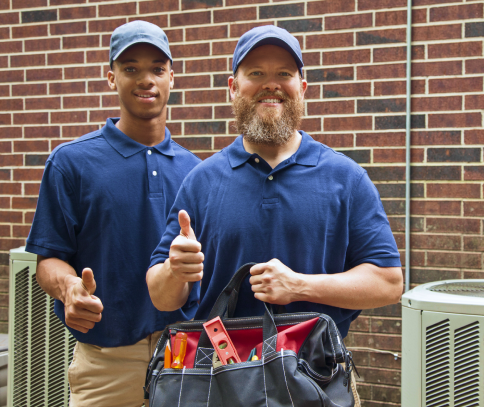
Upgrading your HVAC system is one of the smartest energy-saving moves for homeowners seeking lower utility bills and improved comfort. Keep these key takeaways in mind:
- Older HVAC systems rapidly decline in efficiency, sometimes using 50% or more extra energy than needed. Energy efficient HVAC models could cut those costs significantly.
- Look for the highest SEER and AFUE ratings you can afford, as premium efficiency models provide the greatest savings.
- Proper sizing and high-quality installation are just as important as the equipment selected to maximize energy savings.
- Rebates and tax credits will improve ROI, often paying for a sizable portion of the system cost.
With some research and expert help, investing in an upgraded, high efficiency HVAC can pay for itself relatively quickly while making your home more comfortable for years to come. It’s one of the wisest energy-saving moves homeowners can make.
